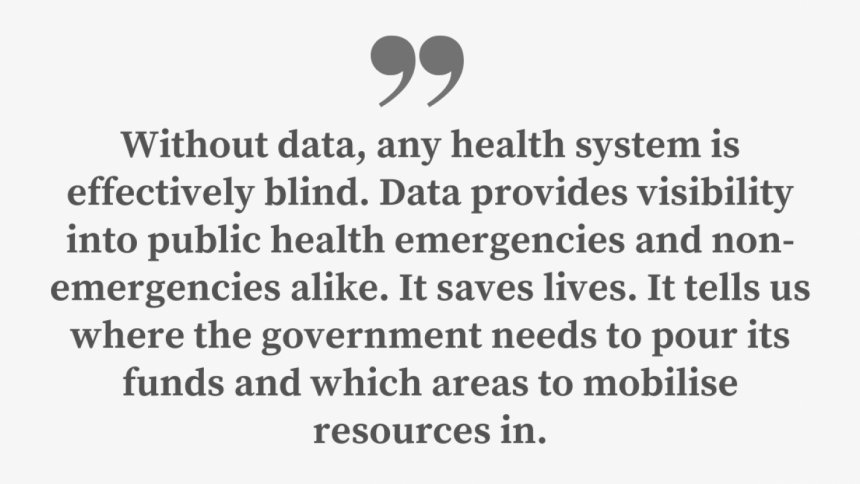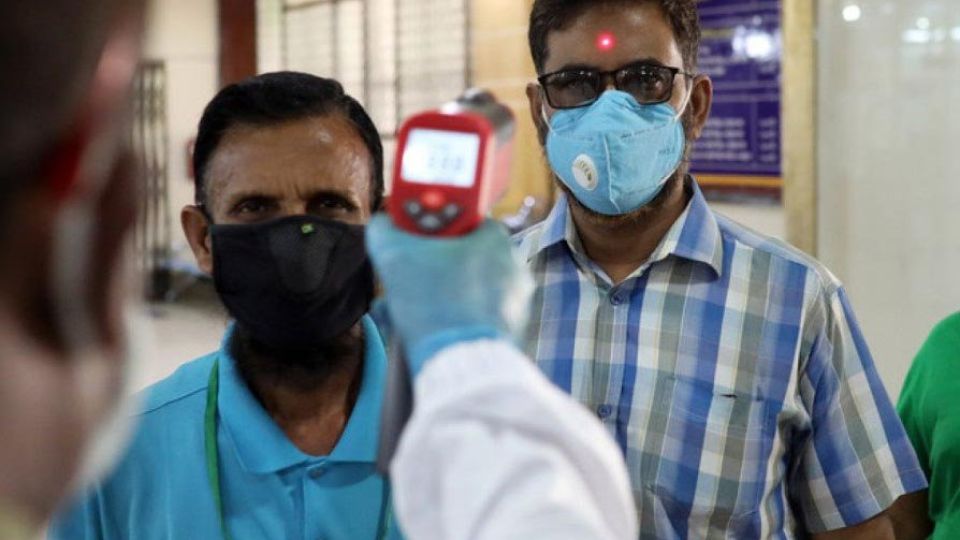December 30, 2022
The director general of the World Health Organization (WHO), Dr Tedros Ghebreyesus, recently called on world leaders to create strong health systems to tackle epidemics because “viruses do not respect borders, and they don’t need visas.”
His call is timely as the world is facing a “tripledemic” of Covid, the flu, and respiratory syncytial virus (RSV). Health scientists advise that many infectious diseases can never be eradicated. Viruses and bacteria have established that they can quickly overwhelm any country’s health system. They have truly put us on notice to stay prepared, respond, and mitigate.
For all latest news, follow The Daily Star’s Google News channel.
Is Bangladesh ready to confront these constant threats? What preparedness does it have against these invisible enemies? How do we meet these challenges?
We often get sidetracked by some competing priorities when assessing our own healthcare infrastructure. Should we invest in training medical professionals and giving them equipment so they can treat patients, or should we develop public health data infrastructure. Or both?
An informed public health professional will argue that public health is half medical and half data. Without data, any health system is effectively blind. Data provides visibility into public health emergencies and non-emergencies alike. It saves lives. It tells us where the government needs to pour its funds and which areas to mobilise resources in. It helps identify gaps in healthcare and measure outcomes. Indeed, data is the eyes and ears of public health.
Being a resource-stripped country, Bangladesh tends to prioritise investing mostly in the purely medical aspects of public health. And that is where we get it wrong.
In an advanced healthcare system, data is integral. A prominent emphasis is placed on collecting data from major healthcare players. The data is stored in an enterprise data warehouse and the public is given access to it. Public health researchers bank on this massive database to inform policymaking. All state governments in the US maintain data warehouses for researchers as it remains the primary source for public health research, policy development, and implementation.
In Bangladesh, this culture is almost nonexistent. We do have data repositories with public access. However, we miss out on a huge amount of data as healthcare actors are not bothered to submit them, and private health systems are reluctant to do so. There is also a lack of regulations and financial incentives to encourage them to diligently file data.

We must require all major systems to submit healthcare encounter data generated by healthcare professionals – documenting both the clinical conditions diagnosed and the services and items delivered to treat these conditions – especially admission, discharge and transfer data. These data types capture the most important highlights across the care continuum. They bring in richer, more reliable data through which to conduct public and population health analytics.
It is also critical that we invest in health data interoperability – that is sharing, adopting, and utilising data across disparate healthcare systems. It enables various distinct data environments to “talk” to each other using a common language. Such data interoperability essentially converts raw data into human-readable information, no matter what technology platforms healthcare providers use. Without interoperability, data is largely useless.
Luckily, the government of Bangladesh recognises the importance of data connectivity.
In 2012, the Ministry of Health and Family Welfare even developed a data interoperability guideline. That was a solid step, but how much progress have we made on this goal?
The manual, titled “Bangladesh eHealth Standards & Interoperability Framework,” that the ministry published is only a first draft from 2012 that has never been finalised. Moreover, the framework failed to refer to the most prominent healthcare data standard, Health Level Seven International (HL7), which has so far been adopted and implemented by 27 countries, including India and the US. As experts opine, HL7 will take the lead in the world of data standards at least for decades.
At any rate, the government should prioritise the increasingly common data language that is HL7 in order to promote data interoperability in the healthcare data arena.
Aside from internal health dynamics, we must also look at the importance of data exchange through a global lens. In the new health reality, low- and middle-income countries have been forced to forge greater relationships with international entities like the WHO to survive and thrive. The WHO has found new alliances in these countries, and has been providing their public health data to the organisation’s global dashboards. It has been delivering support to impoverished nations by supplying various forms of intervention and education. A framework of interdependency has emerged, shifting international relations to a new norm.
To confront emerging threats, Bangladesh must nurture partnerships with other countries.
Without good comprehensive data, we will be short-sold when bargaining for resources against other countries. We would simply be uninformed about what our gaps are, and would have to resort to relying on our gut feelings, which are often wrong.
Data ensures transparency. A large-scale generation, modelling, design, and production of healthcare data will give Bangladesh an upper hand when dealing with global organisations. To prevail, we must build a comprehensive healthcare data infrastructure, driven by a reliable and interoperable data regime at both private and public levels.
Bangladesh misses out on half of its public health potential because of the absence of comprehensive data. “If you cannot measure it, you cannot improve it,” goes the saying. Data is a basic tool for measuring the quality and progress of our healthcare system. In today’s data-driven world, why aren’t we investing in data to achieve better healthcare?
ABM Uddin serves as a healthcare consultant for the Florida Agency for Health Care Administration.


